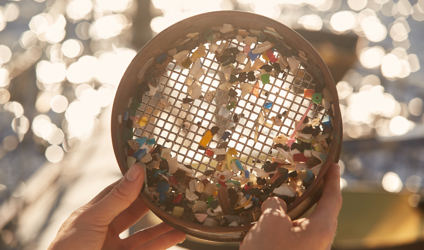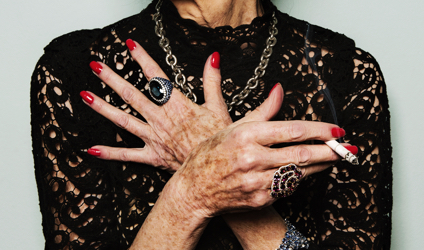What is luxury?
According to Vanessa Barboni Hallik luxury is a mirror of personal values and experience.Vanessa Barboni Hallik
Vanessa Barboni Hallik wants to make it easier for the modern woman to live her values, starting with her closet. Formerly a Managing Director at Morgan Stanley, where she held a number of leadership roles over the last fifteen years, Barboni Hallik is now switching focus onto establishing Another Tomorrow – an editorial platform and soon to launch sustainable fashion brand. She is also an active investor in early-stage companies with values-aligned missions.
The textiles and apparel industries are responsible for shocking levels of global degradation and pollution which simply cannot be sustained. Global clothing production doubled from 2000 to 2015, with over 50% reaching landfill in under a year. The textile industry creates over 1.2 billion tonnes of annual greenhouse gas emissions – equal to maritime shipping and international air travel combined. Half a million tonnes of microfibers from clothing also enters the oceans every year, the equivalent of 50 billion plastic bottles.
“What cuts across cultures is the relevance of the story, the journey behind the product.”
As the CEO and Founder of Another Tomorrow, Barboni Hallik aims to positively influence the luxury fashion industry and consumers by building a luxury brand that addresses sustainability in a holistic and transparent way without compromising design, quality, or price. Barboni Hallik says, “It’s not enough for this brand to succeed. We aim to change the understanding and standards of luxury, raising the bar for customer expectations and the industry.”
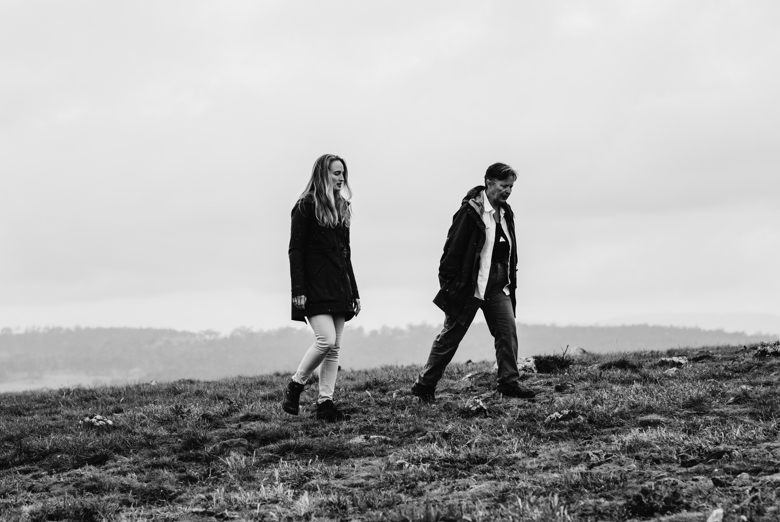
Another Tomorrow takes a bold and progressive step towards embracing holistic sustainable practices – are luxury goods and experiences finally going green?
Without a doubt. On the one hand, you have the consumer who is more knowledgeable than ever and increasingly desires to live a life consistent with her values. And on the other, for the companies producing these goods and experiences at a luxury level of execution and price, there really is zero excuse not to operate ethically and sustainably. That awareness is growing.
I’m excited to see industry leadership from Kering Group in particular, really digging into the science behind sustainability and demonstrating that luxury and sustainability go hand in hand.
The concept of luxury is heavily dependent on the culture of the person who defines it. In your life and travels, what kind of differences in meaning have you encountered?
I find luxury is a mirror of personal values and experience. On the farms with whom we partner for example, there is a deep lived experience and appreciation of how much resource goes into producing anything and therefore, their concept of luxury is rooted in a sense of quality and longevity. It’s the sweater or the coat that lasts thirty years and retains its beauty and function.
In major urban cities, pretty much everywhere, I find it has become about the appreciation of time, relationships and connection. Especially when a product feels like it’s everywhere. And being present can be tough when its work, work, work. I think this is a big driver of experience as luxury.
And then of course, in cultures with long-standing traditions of artistry and craftsmanship, there is definitely a heightened appreciation for both design and execution details. Artistry as luxury. What cuts across cultures is the relevance of the story, the journey behind the product: design, quality of materials, provenance, craftsmanship.
Luxury brands are increasingly more environmentally conscious and sustainable business strategies are now more common, attracting ethically minded, often millennial, consumers. High-end brands like to announce eco-friendly initiatives. But is this enough? Is there sufficient follow through or is “green-washing” still prevalent?
The short answer is, no and no. Real change requires a material shift in mindset at the leadership level, as ethical businesses come from business cultures that mirror those values. I’m optimistic. Where the mindset has changed, the businesses have changed swiftly and even just starting somewhere helps create momentum.
Having said that, I think we have to be honest about the challenges public companies, or even private VC or PE-backed companies, face with incentives to focus on relatively short-term results and constant growth. Right now, the global economy is growing so that provides a helpful cushion, but there are elements of the overall system that need to adjust and that’s an important part of the conversation.
How can luxury brands show real commitment to sustainable causes?
Map and measure the impact of the entire supply chain. Make material, near-term commitments to change and report on progress regularly. Commit to living wages, full-stop. Communicate transparently to the consumer.
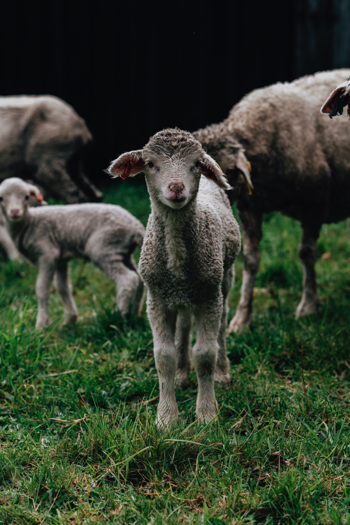
“It’s critical that luxury supports an inclusive economy both in how we operate and whom we bring into the brand conversation.”
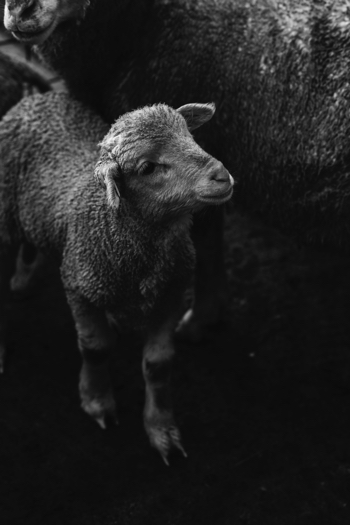
There is a range of growth opportunities within the emerging field of sustainable luxury. But is it the promise of more revenue, or genuine concern for the environment, that is impelling brands to embrace sustainability? And does it even matter, as long as progress is made?
Generally speaking, I think progress is progress, so long as the consumer is not misled in the process. Of course, I’m a bigger fan of genuine concern as the driver, because I think it lends itself to more holistic and sustainable change, but if there is a big brand that thinks it is going to make significantly more revenue making a particular ethical product line or a shift in practices, then I’m still all for it. It’s cracking the door open.
From a business perspective, there are remarkable positive side-effects to integrating sustainability and a strong code of ethics – increased curiosity, creativity, collaboration, and much tighter supplier relationships and ability to manage risk. I’m hoping that as many brands get a taste of these unexpected benefits, it will serve as greater fuel for change.
How do you think the luxury consumer has changed?
Definitely far more selective. The plethora of reasonably well-designed cheaper products, the takeover of e-commerce where quality differentials are less apparent, and the damage done to consumer price expectations by the troubles in wholesale distribution, have made for an increasingly choosey consumer. Add to that shifting desires toward experiences and shifting preferences away from ownership, and luxury really has to earn its customers. I think that’s a good thing!
“Luxury is in great shape for the shift to circular economy approaches, because if it’s really luxury, the product lasts and easily becomes an asset.”
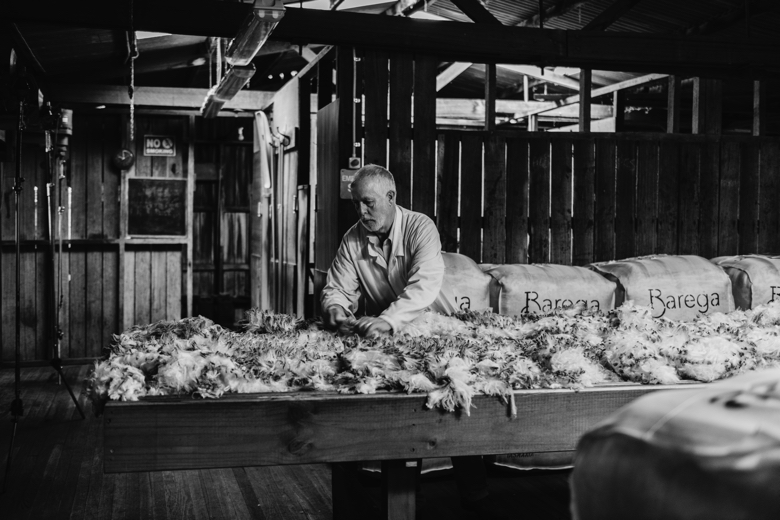
Which qualities would you say are the vital foundations of an authentic luxury product, service or experience?
Differentiated design, thoughtful execution and sourcing, human connection.
When you conceive and create a luxury product or service – what essential elements must be present?
Our filter looks something like this: Do we love it? Does it serve a need for our customer? Is it in our domain of expertise to design and execute to perfection? Can the entire process be done in accordance with our principles? Pretty much in that order. It has to pass through all the steps.
How does your business view the range of growth opportunities within the emerging field of “sustainable luxury?”
We are so excited! The range of opportunities product-wise within our brand universe is considerable because we view ourselves as a company that really operates at the nexus of design, sustainability and ethics. Exciting also is the new array of business models. In many respects luxury is in great shape for the shift to circular economy approaches, because if it’s really luxury, the product lasts and easily becomes an asset.
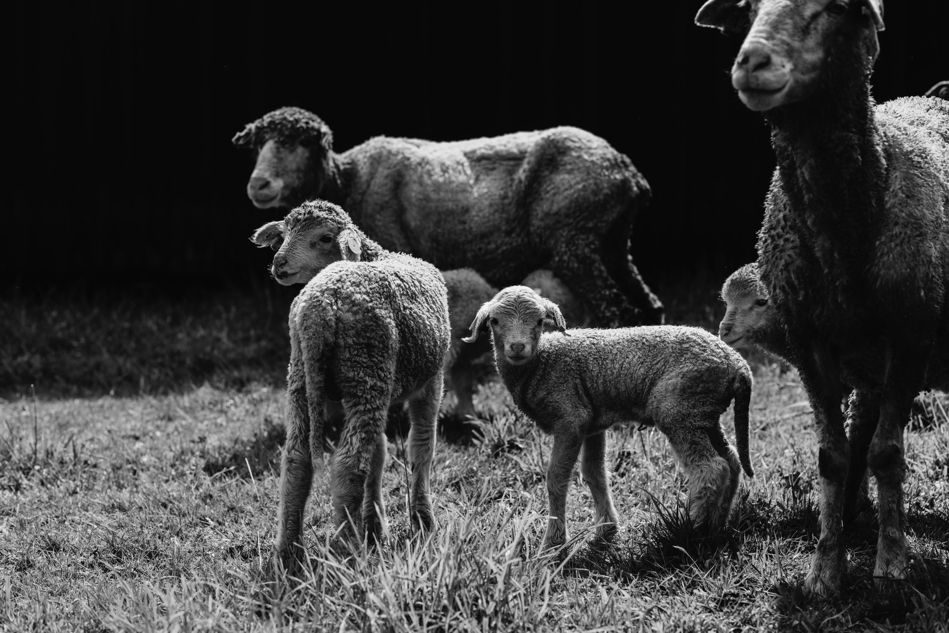
Luxury can seem contradictory – the rarity of a desirable product is part of its appeal, and yet luxury is becoming more accessible – how do you view this delicate balance and the democratisation of luxury?
It’s critical that luxury supports an inclusive economy both in how we operate and whom we bring into the brand conversation. The cost structure for true luxury is always going to be higher, but there are myriad ways with new business models to broaden the product reach without compromising the product at all.
What are the main challenges of luxury brands at this time?
Fully embracing the present.
Could you choose one word to describe luxury now?
Evolving.
What is one luxury you couldn’t do without?
For me, it’s the opportunity to build this company. It’s been one of the greatest gifts to be able to put my energy where my heart is.
How do you see the evolution of luxury and where is it heading next?
Luxury will adapt to the changing values of its consumer. It will embrace the transparency and ethics now expected of all consumer-companies and it will learn to communicate better where it truly differentiates itself.
